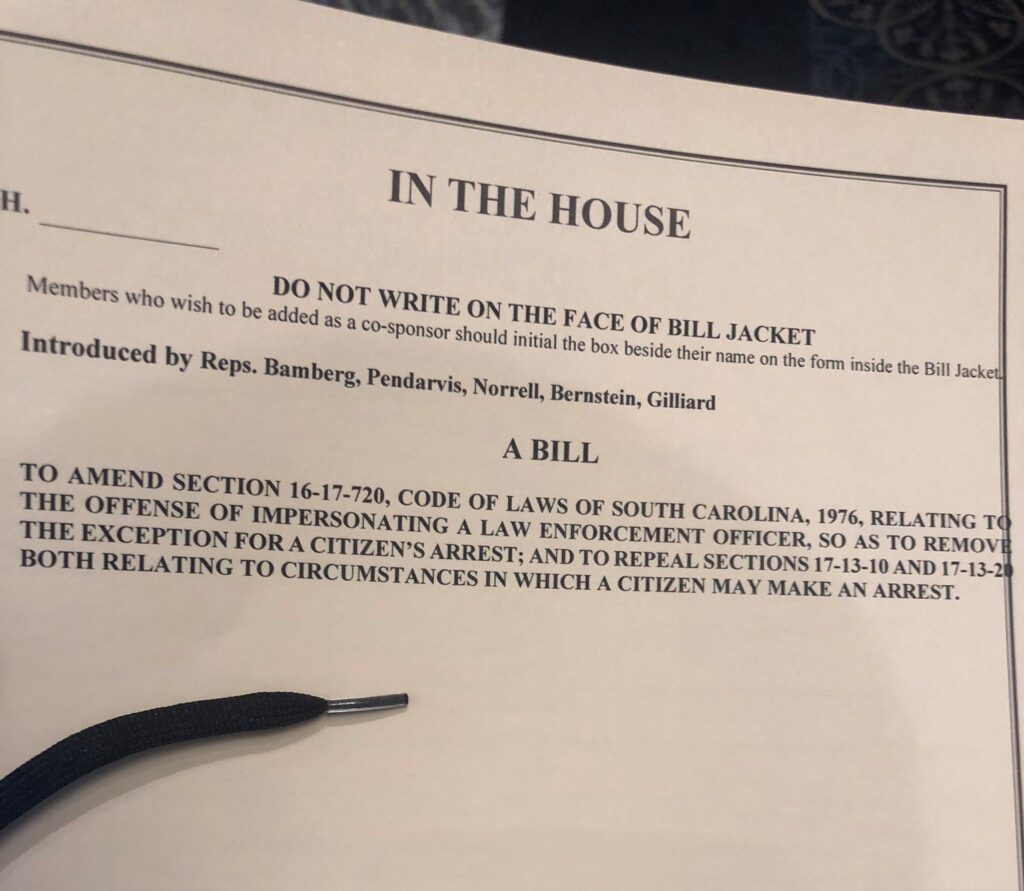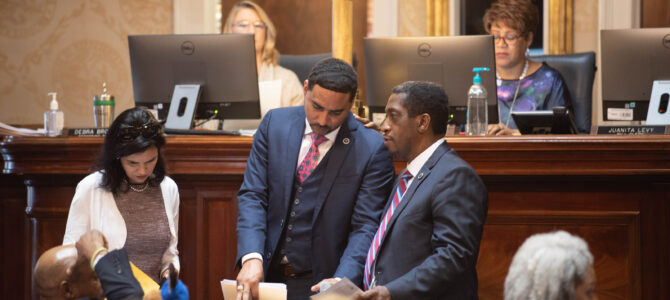On Tuesday, the South Carolina House of Representatives reconvened after weeks of being out of session due to COVID-19, and House Democrats took the opportunity to address the controversial statute of citizen’s arrest.
The statute has been called into question in recent weeks due to the death of Ahmaud Arbery, a 25-year-old who was murdered by two men in Glynn County, Georgia back in February. Arbery had been jogging through a neighborhood when the two men, identified as Travis and Gregory McMichael, followed and shot him in what appears to be a crime motivated by racism.
A video surfaced online this past week that appears to show the confrontation between Arbery and the McMichaels that resulted in the death of the young Black jogger. Charges had not been brought against the McMichaels for the murder of Arbery until the video’s release prompted an uproar across the nation. The reason for the lack of charges? An often-forgotten legal statute called citizen’s arrest that allows everyday citizens to detain suspects in the absence of law enforcement.
Now, South Carolina legislators want to make sure what happened to Arbery does not happen here. Representative Mandy Powers Norrell of Lancaster filed legislation on Tuesday that would eliminate the “vague and open-ended wording” in South Carolina law that allows for the use of deadly force in the making of a citizen’s arrest. Co-sponsors of this bill include Representatives Beth Bernstein, Gilda Cobb-Hunter, Kambrell Garvin, Marvin Pendarvis, Annie McDaniel, and Shedron Williams.

Representative Justin Bamberg recommends that the state do away with citizen’s arrests entirely. He filed his own bill that would repeal the statute that allows for citizens to take the law into their own hands. This bill is similarly co-sponsored by high-ranking House Democrats like Representatives Powers Norrell, Pendarvis, Bernstein, and Wendell Gilliard.
“If a citizen wants to police their community and take the law into their own hands, I encourage them to sign up, attend the academy, and take the oath of office,” said Bamberg. “Otherwise, leave the policing to law enforcement.”


